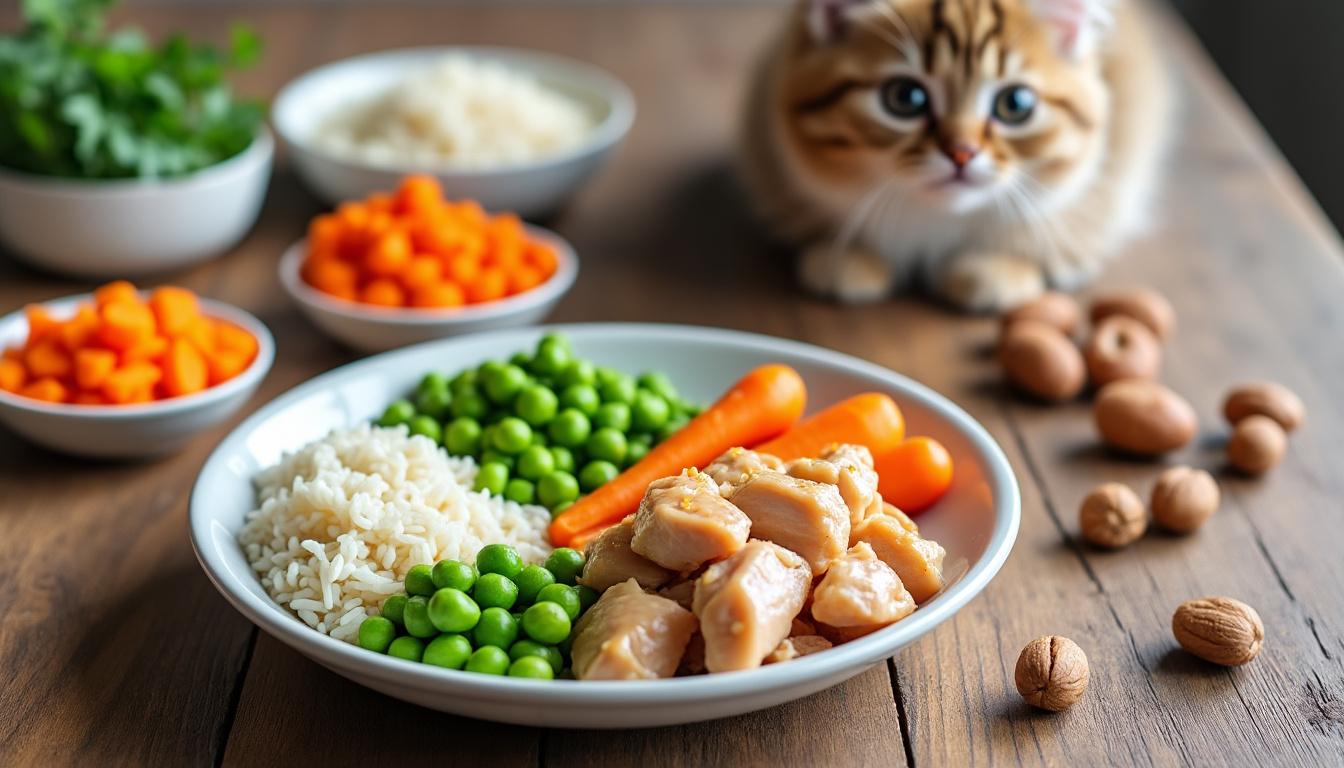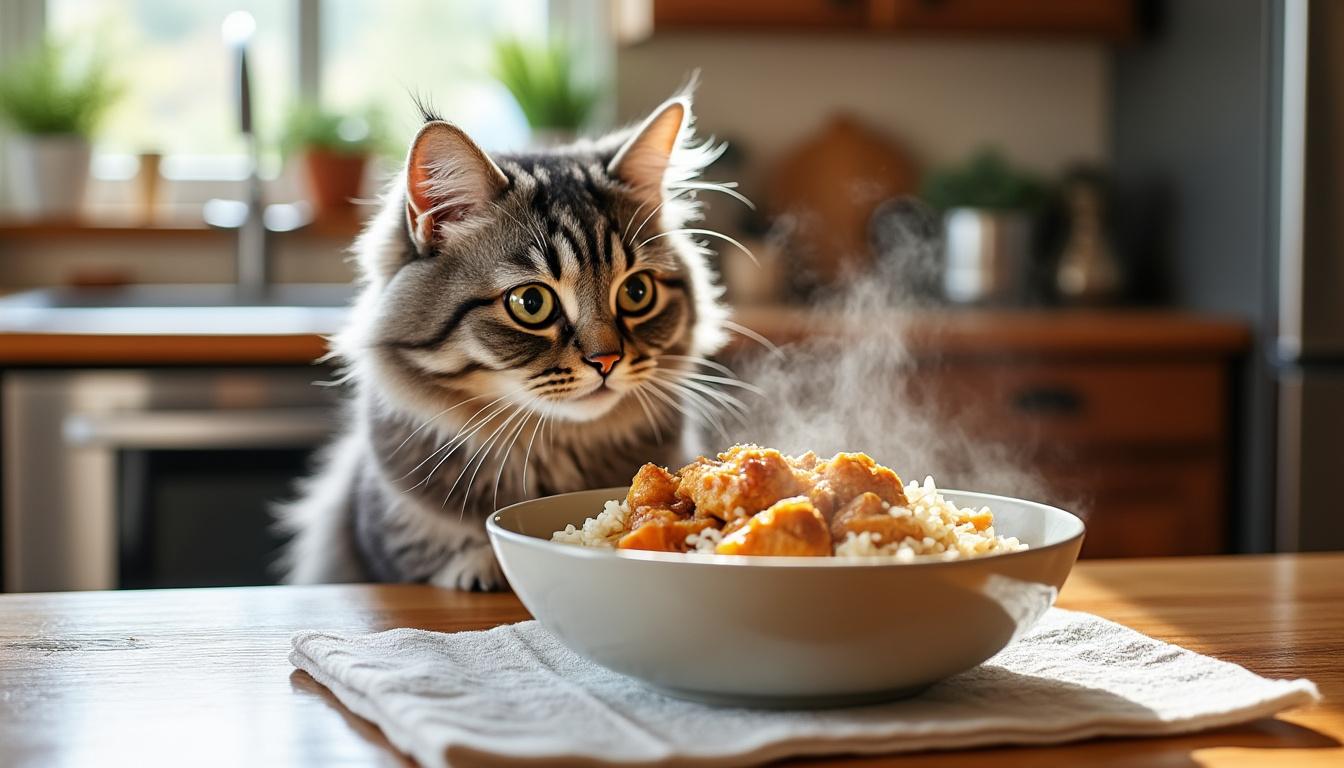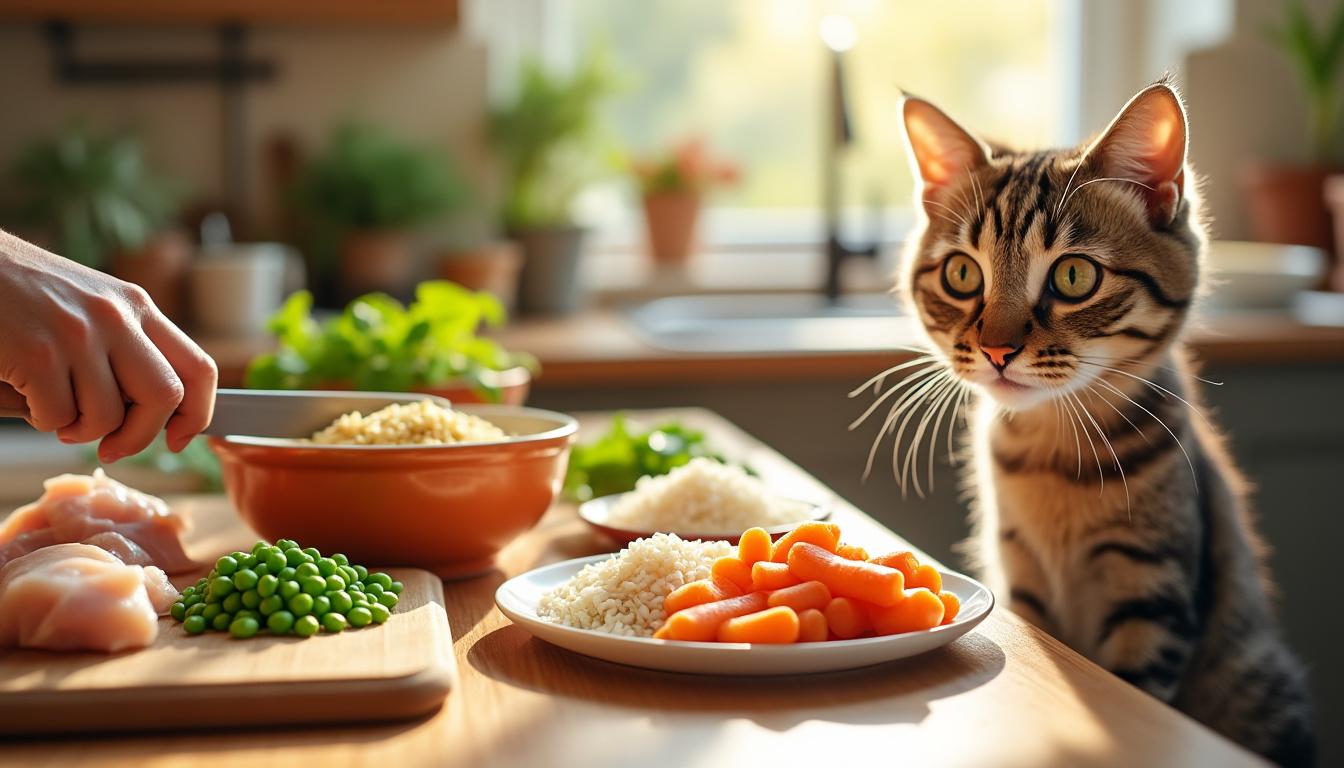Making homemade cat food is a topic that has captured the attention of many pet owners. With the growing concern about the ingredients in commercial cat food and the desire to provide our feline friends with the best possible nutrition, the idea of cooking up meals at home has become increasingly popular. While some may find the concept appealing, others argue that it can lead to potential risks if not done correctly. This article delves into the world of homemade cat food, exploring the essential nutrients that cats need, the pros and cons of homemade versus store-bought options, common pitfalls to avoid, and a simple recipe to get you started on this rewarding culinary journey.
Brief
- Homemade cat food can be safe and nutritious when prepared correctly. 🍽️
- Understanding the essential nutrients for cats is crucial, including high-quality protein and taurine. 💪
- Both homemade and store-bought cat food have unique benefits and drawbacks. ⚖️
- Common mistakes include neglecting taurine and failing to consult a vet. 🚫
- A simple homemade recipe can be an excellent start for pet owners interested in DIY meals for their felines. 🐾
Essential Nutrients for Homemade Cat Food
When considering making your own cat food, understanding the nutritional requirements of felines is paramount. Cats are obligate carnivores, meaning they must consume meat to meet their dietary needs. A well-rounded homemade cat food recipe should include:
- High-Quality Protein: Essential for muscle development and energy. Good options include chicken, turkey, beef, and fish. 🐔
- Taurine: A crucial amino acid for heart health, vision, and overall well-being. Cats cannot synthesize taurine, so it must be included in their diet through foods like chicken hearts and liver. ❤️
- Healthy Fats: Providing energy and supporting healthy skin, fats sourced from chicken skin, fish oil, and egg yolks are beneficial. 🥚
- Calcium and Phosphorus: Important for strong bones and teeth, these nutrients can be found in raw meaty bones or supplemented with ground eggshells. 🦴
- Vitamins and Minerals: Including vitamin A from liver and a variety of B vitamins from organ meats ensures your cat’s immune system and overall health are supported. 🌿
Table of Essential Nutrients
| Nutrient | Source | Function |
|---|---|---|
| Protein | Chicken, Beef, Fish | Muscle growth and energy |
| Taurine | Chicken hearts, Liver | Heart function and vision |
| Fats | Fish oil, Egg yolks | Energy and skin health |
| Calcium | Ground eggshells | Bone strength |
| Vitamins | Liver, Organ meats | Immune support |
It’s vital to strike a balance between these nutrients when preparing homemade meals. Including both muscle meat and organ meats is a great way to ensure your cat receives a comprehensive array of nutrients. More than just health, nourishing your cat with quality ingredients not only fosters physical well-being but can also lead to enhanced relationships, with visible signs of gratitude from your furry companion.

Homemade versus Store-Bought Cat Food: Pros and Cons
The debate of homemade versus commercial cat food is a hot topic among pet owners. While both options have their advantages and disadvantages, understanding these could help you make a more informed decision for your feline friend.
Pros of Homemade Cat Food
- Ingredient Control: You have complete control over what goes into your cat’s food, allowing you to choose high-quality, nutritious ingredients. 👍
- Freshness: Homemade meals can be prepared fresh, without the preservatives or fillers found in some commercial brands. 🍅
- Cost-Effective: Depending on how you plan your meals, homemade food can be less expensive than premium store-bought options. 💰
Cons of Homemade Cat Food
- Preparation Time: Preparing meals can be time-consuming, requiring effort and knowledge about feline nutritional needs. ⏳
- Nutritional Balance: It requires careful planning to ensure that all essential nutrition is met. Many homemade diets end up lacking key vitamins and minerals. ⚠️
- Need for Vet Consultation: Transitioning to a homemade diet should include advice from a veterinarian for proper supplementation and dietary advice. 🩺
Comparison Table
| Factor | Homemade Cat Food | Store-Bought Cat Food |
|---|---|---|
| Ingredient Control | Full control over quality | May contain fillers |
| Freshness | Always fresh | Longer shelf life |
| Cost | Can be cost-effective | Premium brands can be expensive |
| Convenience | Requires preparation | Easy and ready to serve |
| Nutritional Balance | Needs careful planning | Formulated to meet feline needs |
In the end, both homemade and store-bought cat food can provide great nutrition for your felines. The choice largely relies on your personal preferences and commitment to ensuring your cat’s dietary needs are met.
Common Mistakes to Avoid When Making Homemade Cat Food
As you embark on the adventure of preparing homemade cat food, being aware of common pitfalls can save you from future trouble. Here are the most frequent missteps that cat owners should watch out for:
- Neglecting Taurine: Failing to include this essential nutrient can lead to serious health issues for cats, such as heart disease. Always make sure to incorporate taurine-rich ingredients like organ meats. 🔍
- Using Only Muscle Meat: While muscle meat is vital, it lacks important nutrients that can be found in organs and bones. Make sure to have a balanced mix for optimal health. 🥩
- Forgetting Calcium: Without adequate calcium, your cat’s bones may not properly develop. Integrating ground eggshells or bone meal into meals can help address this need. 🦴
- Skipping Vet Consultation: Always check in with a veterinarian before changing your cat’s diet to ensure that their nutritional needs are fully met. 🩺
Tips for Success
- Start simple and gradually add variety to your cat’s diet. 🐾
- Use both muscle and organ meats to cover a range of nutrients. ⚖️
- Monitor your cat’s health and adjust the diet based on their response. 📈
Proper planning and knowledge are vital to ensure your homemade cat food not only pleases your cat but keeps their health thriving.

A Simple Homemade Cat Food Recipe to Get You Started
If you’re ready to dive into the world of homemade cat food, here’s a straightforward recipe that is both nutritious and easy to make. This recipe features salmon, a delightful option for many felines:
Ingredients
- 500g boneless salmon 🐟
- 50g salmon liver 🍣
- 1 egg yolk 🥚
- 1 tsp fish oil (Omega-3) 🐟
- 500mg taurine supplement (if not using enough organ meats) 💊
- 1 tsp ground eggshell (for calcium) 🥚
- ½ cup water (for moisture) 💧
Instructions
- Prepare the Salmon: Remove any bones and ensure it’s fresh. Clean the liver as well. 🧼
- Cook the Salmon: Lightly sauté the salmon in a pan without seasoning. Let cool before mixing. 🔥
- Combine Ingredients: In a bowl, mix the cooked salmon, liver, egg yolk, fish oil, taurine supplement, and ground eggshell until well blended. 🍽️
- Add Moisture: Pour in ½ cup of water and mix thoroughly to ensure a smooth consistency. 💦
- Store Safely: Place the mix in airtight containers and refrigerate for up to 3 days, or freeze portions for up to 3 months. 🥶
It’s a simple, effective way to ensure your feline receives quality nutrition. Just be sure to introduce any new food gradually to avoid tummy troubles!
The Importance of Vet Consultation
Before making any dietary changes, consulting your veterinarian is a crucial step. Animal nutrition can vary significantly based on age, health, and specific needs.
- Every cat is different; their nutritional requirements can change over time based on health or activity levels. 🐈⬛
- Kittens and senior cats have special dietary needs that need to be considered carefully. 🍼
- Your vet can recommend necessary supplements to ensure your homemade recipes are well-balanced. 💊
Merging your culinary efforts with professional advice will help you create meals that not only taste great but also support your cat’s health effectively. Remember, it’s about creating a sustainable and healthy relationship between food and wellbeing.
Can I make homemade cat food every day?
Yes, you can, but ensure that the recipes are balanced and consult a vet for tailored advice.
What ingredients should I avoid in homemade cat food?
Avoid ingredients toxic to cats like onions, garlic, and chocolate. Stick to safe, high-quality meats and vegetables.
How can I tell if my cat is adapting well to homemade food?
Watch for healthy weight, shiny coat, and good energy levels. If in doubt, consult your vet.
Can I use leftovers for homemade cat food?
Use unseasoned, unprocessed leftovers in small amounts, but ensure they meet nutritional needs.
Should I supplement homemade cat food?
Yes, generally supplementation is necessary to ensure a balanced diet, particularly with taurine and calcium.

